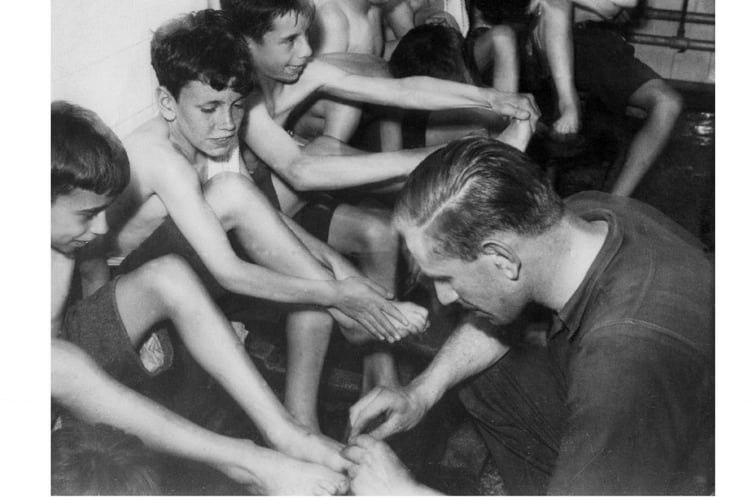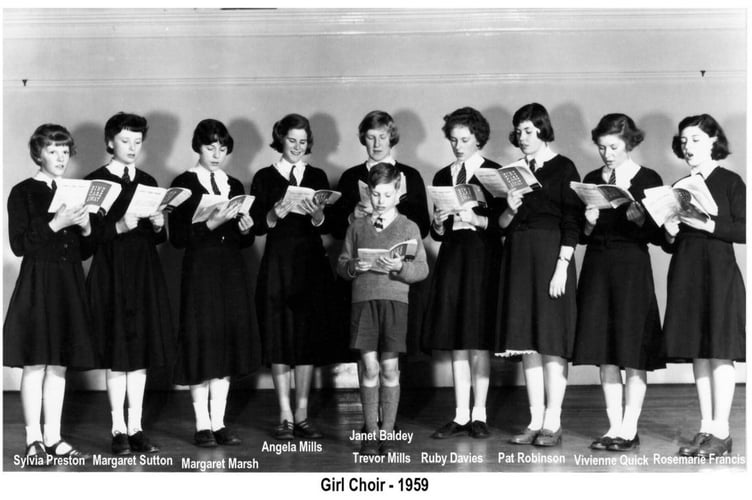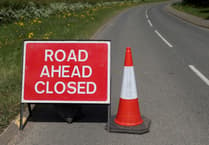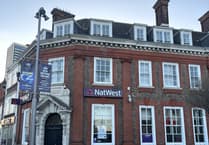THIS week we delve into a fantastic archive of photographs and cuttings detailing the orphanage in Woking for children whose railwaymen fathers had been killed or injured at work.
Barry Coom was at the orphanage from 1957 to 1962 following the death of his father, who was a train driver based at Eastleigh in Hampshire.
Barry has a collection of orphanage-related articles that were published in railway staff magazines over many years.
The articles kept railway staff informed about the home and the children living there. The orphanage was totally reliant on voluntary contributions to keep it open.
Originally known as The London & South Western Railway Servant’s Orphanage, founded in Clapham in 1886, it moved to Woking with the building of a new orphanage in 1909.
The name of the home changed in 1923 to the Southern Railway Servants’ Orphanage. It expanded in the 1930s, by which time it could accommodate 200 children.
When a home for retired railwaymen was built nearby in 1947, it was named as the Southern Railwaymen’s Home for Children in association with the Southern Railway Home for Old People.

In 1982 the name changed again – to Woking Homes. Since then the site, off Oriental Road, has been much redeveloped.
Although the last children left in 1989, the building continues to offer accommodation for older people, many of whom worked on the railways.
From its outset, the orphanage’s aims were to ensure life for the children was as close as possible to that they would experience in a family home. It had rules and discipline, but there was plenty of fun and laughter. When children left and entered the world of work, they were supported by a welfare committee until they reached the age of 21.
On its opening, the orphanage boasted electric lighting, running hot water and central heating. There were extensive grounds, playing fields, a gymnasium, a library and a hospital.

Railway staff gave generously to the orphanage. They also provided for annual holidays, excursions and parties. A committee from their own ranks managed it. Visits from railwaymen and their families were welcome and it’s said they often arrived in their hundreds.
These and other events at the orphanage, as well as daily life, were reported in the staff magazines, helping to keep the home’s profile high.
A history of the orphanage was published in a booklet several years ago, with notes by Barry and others. In 2011, a CD-ROM featuring the cuttings and pictures that Barry had collected was released.
He has given permission for some of them to be featured in a series in Peeps into the Past.
If you have some memories or old pictures relating to the Woking area, call David Rose on 01483 838960, or drop a line to the News & Mail.
David Rose is a local historian and writer who specialises in what he calls “the history within living memory” of people, places and events in the west Surrey area covering towns such as Woking and Guildford. He collects old photos and memorabilia relating to the area and the subject, and regularly gives illustrated local history talks to groups and societies. For enquiries and bookings please phone or email him at: [email protected]




